Research News
16 February 2024
Green steel programme receives final approval, marking its official start
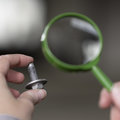
On 12 February, the Growing with Green Steel programme received official approval for a grant of more than 100 million euros from the National Growth Fund. Around 22 million euros of the total sum is destined for TU Delft. The programme aims to develop scientific knowledge and technology for sustainable steel production.
16 February 2024
Siemens CEO explores Control Room of the Future at EEMCS

On Thursday February 15, President and CEO of Siemens AG Roland Busch visited the Control Room of the Future (CRoF) Technology Centre, showcasing the shared ambitions of Siemens and TU Delft to explore the frontiers of energy management innovation. TU Delft's CRoF, led by Assistant Professor Alex Stefanov, is a Technology Centre aimed at making the future power grid intelligent, digitally resilient and cyber secure.
13 February 2024
Cynthia Liem Receives Women in AI Netherlands Diversity Leader Award
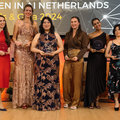
Cynthia Liem, associate professor of the Intelligent Systems department, has been recognised with the 2024 Women in AI Netherlands Diversity Leader Award. This highlights her contributions to enhancing diversity, equity, and inclusivity within the artificial intelligence (AI) sector.
13 February 2024
Scientists develop new technology to identify individual full-length human proteins
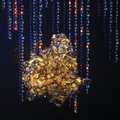
In a study published in Nature Nanotechnology, scientists from Delft University of Technology present a new technique to identify proteins. Proteins carry out essential functions in our cells, while playing a crucial role in diseases like cancer and COVID-19 infection. The researchers identify proteins by reading out the fingerprint, and comparing the fingerprint to patterns from a database. Using this new technology, the researchers can identify individual, intact, full-length proteins, preserving all its information. This can shed light on the mechanisms behind many different diseases and allows earlier diagnosis.
13 February 2024
Unveiling of plaque and mural at Antoni van Leeuwenhoek's birthplace
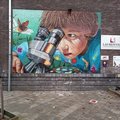
2023 marked the 300th anniversary of Antoni van Leeuwenhoek's death at the age of 91. This was widely commemorated in Delft and beyond last year. TU Delft also remembered the father of microbiology in many ways, including the podcast “A world full of secrets”. Of course, the story of Antoni van Leeuwenhoek deserves a wide audience. That is why last year the Royal Dutch Society for Microbiology (KNVM) commissioned a mural and a plaque on the site of Antoni van Leeuwenhoek's birthplace, now De Oostpoort primary school.
12 February 2024
TU Delft receives 2 million for 'Lifelong Learning'
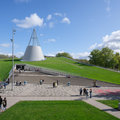
12 February 2024
Projects awarded by the Open Education Stimulation Fund 2023

The Open Science Programme was pleasantly surprised by the number of proposals: 29 were submitted by TU Delft Lecturers.
12 February 2024
Clouds disappear quickly during solar eclipse

Cumulus clouds over land start to disappear almost instantly during a partial solar eclipse. Until recently, satellite measurements during the eclipse resulted in dark spots in the cloud map, but researchers from TU Delft and KNMI were able to recover the satellite measurements by using a new method. The results may have implications for proposed climate engineering ideas, because disappearing clouds can partly oppose the cooling effect of artificial solar eclipses. The results were published today in Nature Communications Earth and Environment.
08 February 2024
New AI tool discovers realistic 'metamaterials' with unusual properties
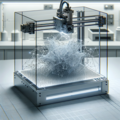
A coating that can hide objects in plain sight, or an implant that behaves exactly like bone tissue. These extraordinary objects are already made from ‘metamaterials’. Researchers from TU Delft have now developed an AI tool that not only can discover such extraordinary materials but also makes them fabrication-ready and durable.
08 February 2024
How social science can make the energy transition more fair
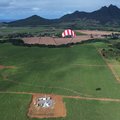
‘People living near an airborne wind energy test site in Germany experience noise, ecological and safety impacts from the airborne wind energy system similar to those from the nearest regular wind farm. The airborne system did score better on visual impacts.’ These are the main conclusions from a pioneering study into the social impacts of airborne wind energy conducted by Helena Schmidt, a PhD candidate at TU Delft in collaboration with Medical School Hamburg.
07 February 2024
Tim van der Hagen reappointed as Rector Magnificus/President of the Executive Board

TU Delft’s Supervisory Board has reappointed Professor Tim van der Hagen as Rector Magnificus/President of the Executive Board of TU Delft. The reappointment comes into effect on 1 May 2024 and runs until 7 October 2026.
07 February 2024
Inaugural speech: ‘Trading heat for a sustainable future’
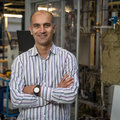
Commodifying heat. That is the ultimate goal of TU Delft professor of Heat Transformation Technology Kamel Hooman. In the future, consumers could store heat they do not use and sell it in a market. In this way, total energy loss could be halved. Crucial here is that heat can be efficiently stored and transported. Hooman will explain how he intends to achieve this in his inaugural speech on 7 February.
05 February 2024
TU Delft develops model to better understand injuries to babies caused by violent shaking
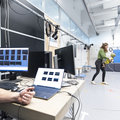
Shaking a baby violently can cause head and neck injuries, blindness and in some cases even death. Researchers at TU Delft, faculty of Mechanical Engineering, are using a dummy baby and computer models to map the accelerations that act on the head during shaking. They want to be able to assess the risk of injury more accurately. This could eventually lead to more clarity in legal cases on the subject.
05 February 2024
Professor Axelle Viré brings winds of change to energy transition

“With floating wind energy technology tested in hybrid labs we can radically scale up and speed up the use of offshore wind energy in the energy transition,” says Axelle Viré, Full Professor of Floating Wind Energy at TU Delft in her inaugural speech on 16 February 2024.
02 February 2024
NWO grant for Human-Centred AI for crowd crisis response
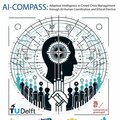
AI has the potential to support crowd crises decisions, yet the increasing use of AI has led to a debate about the legal and ethical implications. To address these challenges, the AI-COMPASS consortium, led by TU Delft, develops real-time decision support systems, considering context, behaviour, and values. The project is financed by the Collaboration between Humans and (semi-)Autonomous systems programme of NWO.